
7 ways to support your team's mental health
You don't have to come up with global goals and objectives to help your teams get through tough times, either related to the environment or to problems in the organization. First consider what you can do without much work or expense. While this is especially true for Ukrainian companies, so write it down for yourself. We chose 10 of the easiest and most budget-friendly ways to morally support employees.
Incorporate flexible work schedules
Research suggests that flexible work arrangements actually increase work efficiency by 65% And working from home also helps employees save up to $54 per week.
So, both employers and employees will benefit from flexible hours. If your company still has a rigid 9 a.m. to 6 p.m. workday, even in a remote job, it's worth reconsidering those rules. Here's what measures you can resort to:
- Allow employees to choose to start the workday (e.g., 9:00 a.m., 10:00 a.m., 11:00 a.m., and adjust the meeting schedule for general comfort - 1:00 p.m., etc.).
- Allow employees to take a lunch break at will - a "floating" hour.
- Introduce one day off per month that can be taken without loss of compensation and spent on vacation or with family - Family Day, Bonus Day, etc.
- Introduce the possibility to take unplanned absences in case of danger during hostilities, bombings (if some of your employees are in high risk areas)
- Introduce special types of absence in the HRM system, by activating which the employee lets the team know that he/she is unavailable for now due to danger/moral problems/health problems, etc.
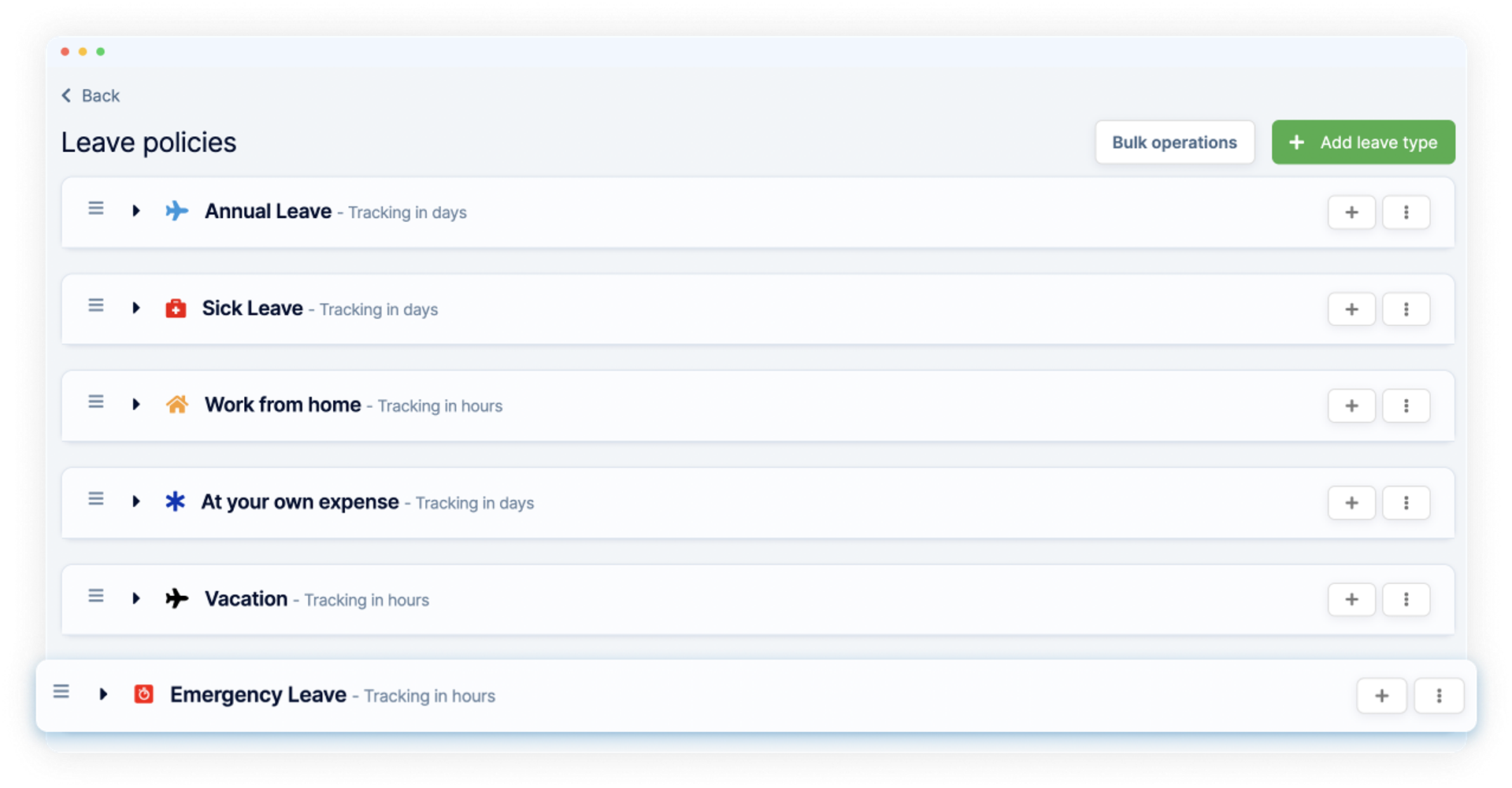
Practice short goals
CEOs and senior management usually talk about global goals that the team must achieve in a certain period, or share their vision for the immediate future of the team on calls. It puts on the shoulders of the team members to bring the future as close as possible. Goals, goals, goals. Sometimes we work too hard, but we don't see instant progress or receive any praise for it. This has a very negative effect on employee morale. Try to reduce such a morale burden by breaking big goals into smaller ones, set achievable goals for short OKR periods and don't forget to praise your colleagues for their achievements.
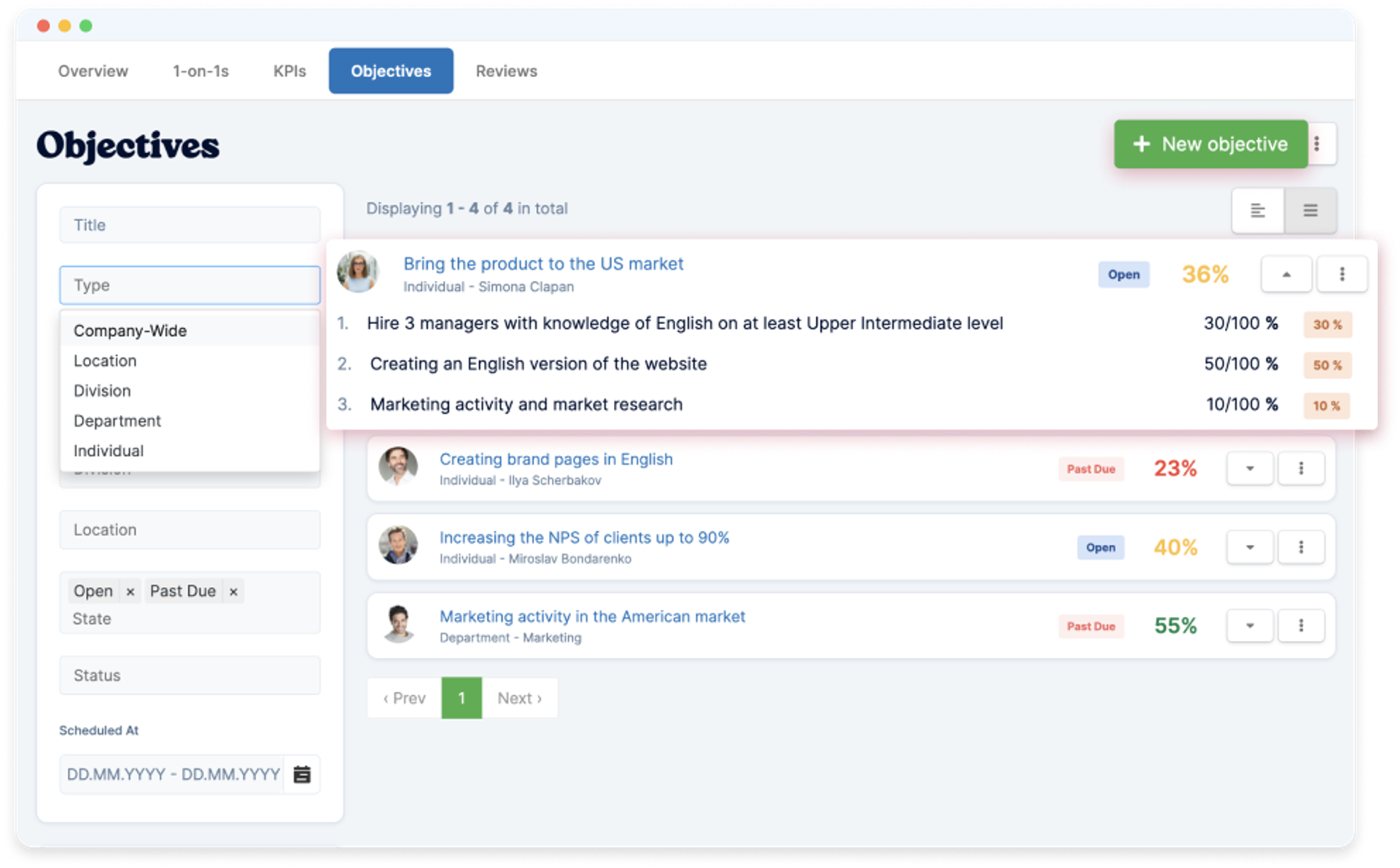
Write down all the big and small wins
Speaking of accomplishments. Do you run your own Slack, have a bulletin board in your HRM system, or even just chat with colleagues on Telegram? Always share any, even the smallest wins with the staff. Did you get a new client? Tell your colleagues about it. Signed a great contract? You can talk about that, too. A product update? A new service? A qualitative change in corporate culture that you can't keep quiet about? Spread the word and in doing so, get your colleagues used to sharing their accomplishments, too.
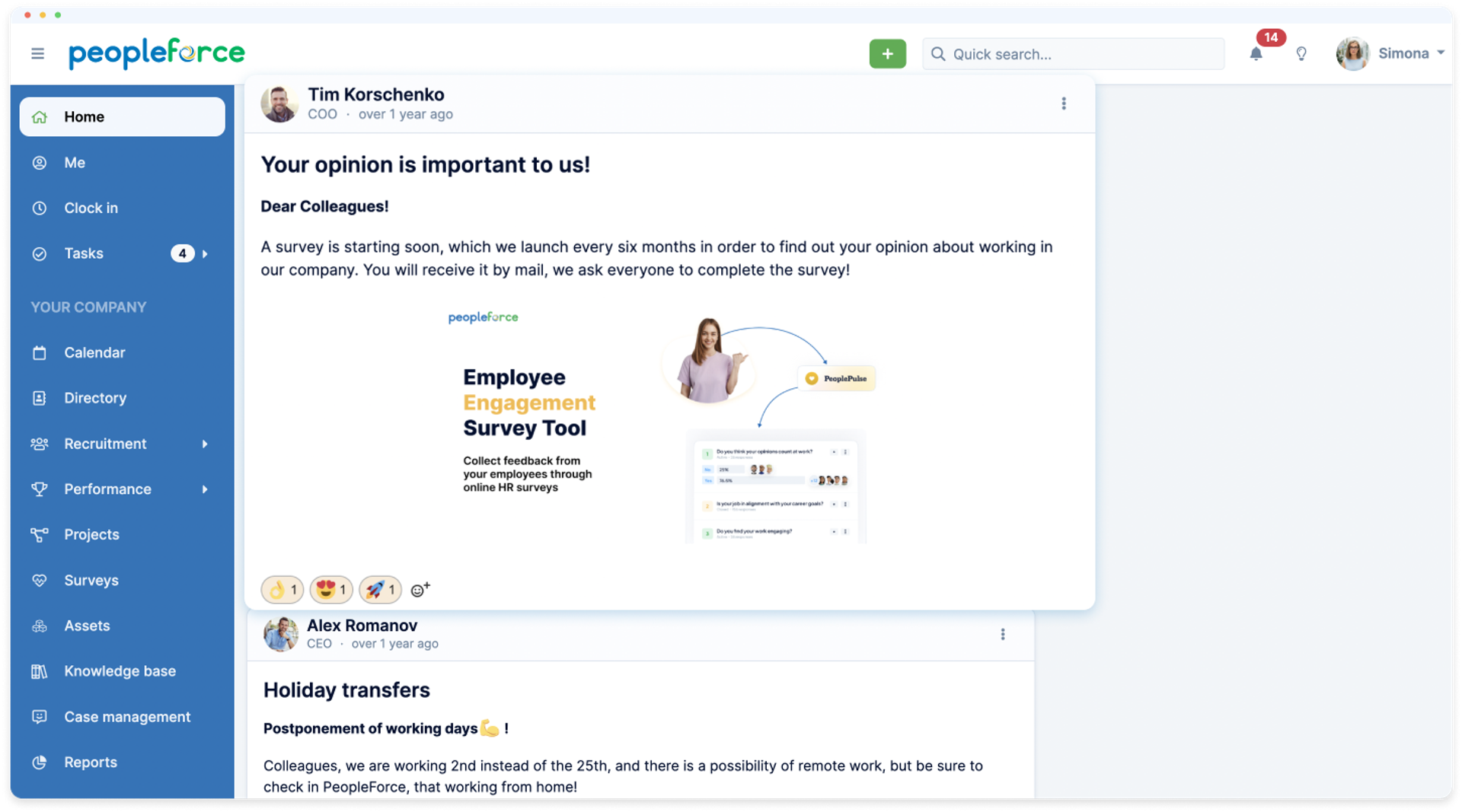
Introduce an "idea box"
PeopleForce has a cool ability to "donate" ideas to a box in the system and then vote for the most popular ones. For example, if one of us has an idea to buy a projector and get together for movie evenings, they log in, write down the wish, and then we see their suggestion and can support it. Implement such a box of ideas in your team. You can prescribe the rules in advance, for example material ideas should not exceed, 2000 UAH budget f.e. But believe us, the most valuable thing in this activity is the opportunity to offer something and be heard. And during the war it is also the easiest way to start some initiative in the company.
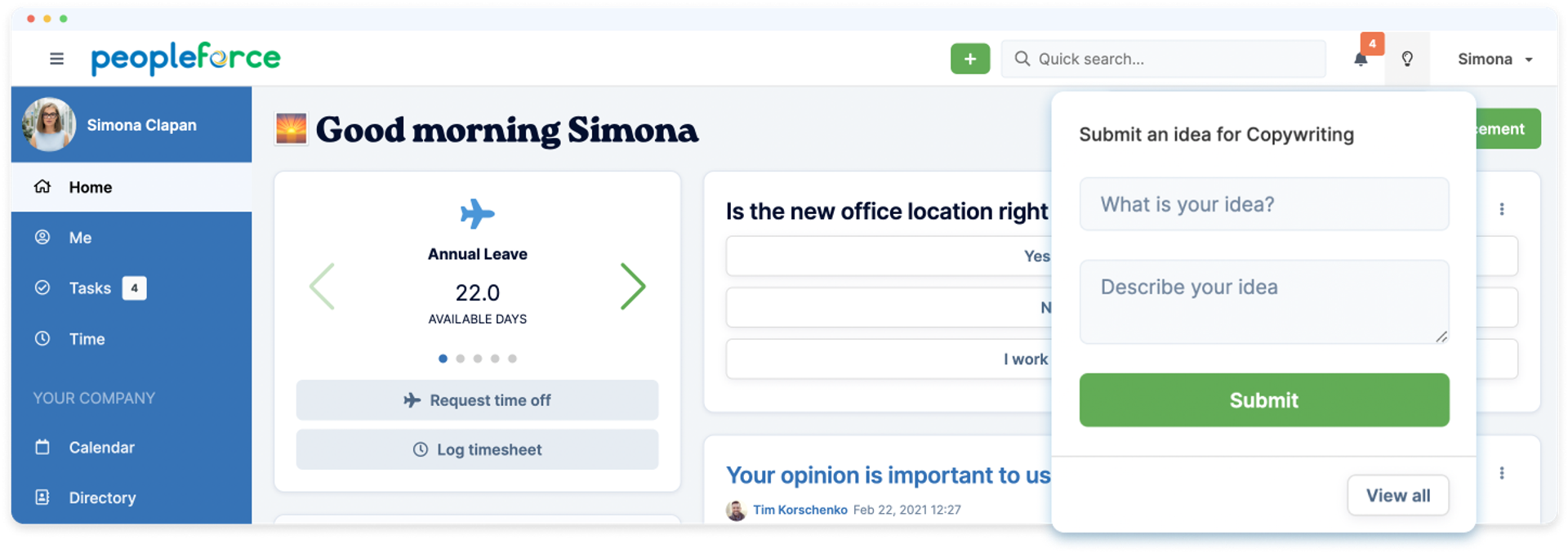
Offer mental health resources
We understand that not every company can afford an in-house psychologist or even just buy a course or visits for their employees. However, taking care of a team's mental health is extremely important - and there's no substitute for a regular weekend or sick leave. If you still want to help in any way, we suggest adding a separate section to your knowledge base, which will include support resources. You could add the following contacts there, for example:
Play games online - e.g. scavenger hunt
Is your team divided and partly working remotely? Someone has moved to other countries and is just adapting to the new conditions? Someone is working from other areas of Ukraine as a temporary migrant? That shouldn't stop you from playing games and maintaining a friendly atmosphere.
Of course, it's hard to come up with a game or online entertainment in general so that everyone - remote workers too - can participate. But we have a little idea. Play scavenger hunt! It's a "treasure hunt" game, similar to team quests, and in English-speaking countries at Easter children look for the Easter bunny with Easter eggs. You can hunt in a different way - for example, give weekly tasks for participants to complete offline and then show the results:
- Take a picture of the most attractive place in their city
- Find a street with an interesting name and tell its story
- Take a picture of yourself working in a café
- Take a picture of your company's identity against the backdrop of a city or tourist attraction
- Show off your workspace
- Count how many cups of coffee or tea an employee drinks per day
- Have your picture taken in a company t-shirt
- Count the maximum number of meetings per week, etc.
When an employee completes a task, they will be awarded a point. That way, the person or team that scores more points can win something - think of a prize like an extra weekend or a certificate for psychological help.
Document your employees' stories and run a column on social media
With war and relocation, each of your employees has a unique life story. They all have their own, but all of them together are the story of your company. Be sure to ask about your colleagues' experiences, their stories, write them down and start telling them to others. Use your own social media as an asset to show another side of team - living, interesting, vital. Start a "Our Team" or "Team at War" column, and feed the real-life stories of people you want everyone to hear about on social media.
Remember that the mental health of your team directly affects the closing of tasks and goals. So pay attention to it, monitor the team's daily mood, don't forget to ask about workloads and reallocate tasks - and most importantly, be open with employees and encourage them to talk about their mental health and take care of it to prevent burnout.
With over five years in HR tech content creation, Maria explores how technology, people, and culture shape the workplace of today. Her interests include HR, AI, IT, and personal development, and she brings a data-driven, human-centered perspective to her writing.
Get started with PeopleForce today
Automate your HR routine to create a high performance culture in your company. PeopleForce is your best HRM alternative to stay business driven but people focused.
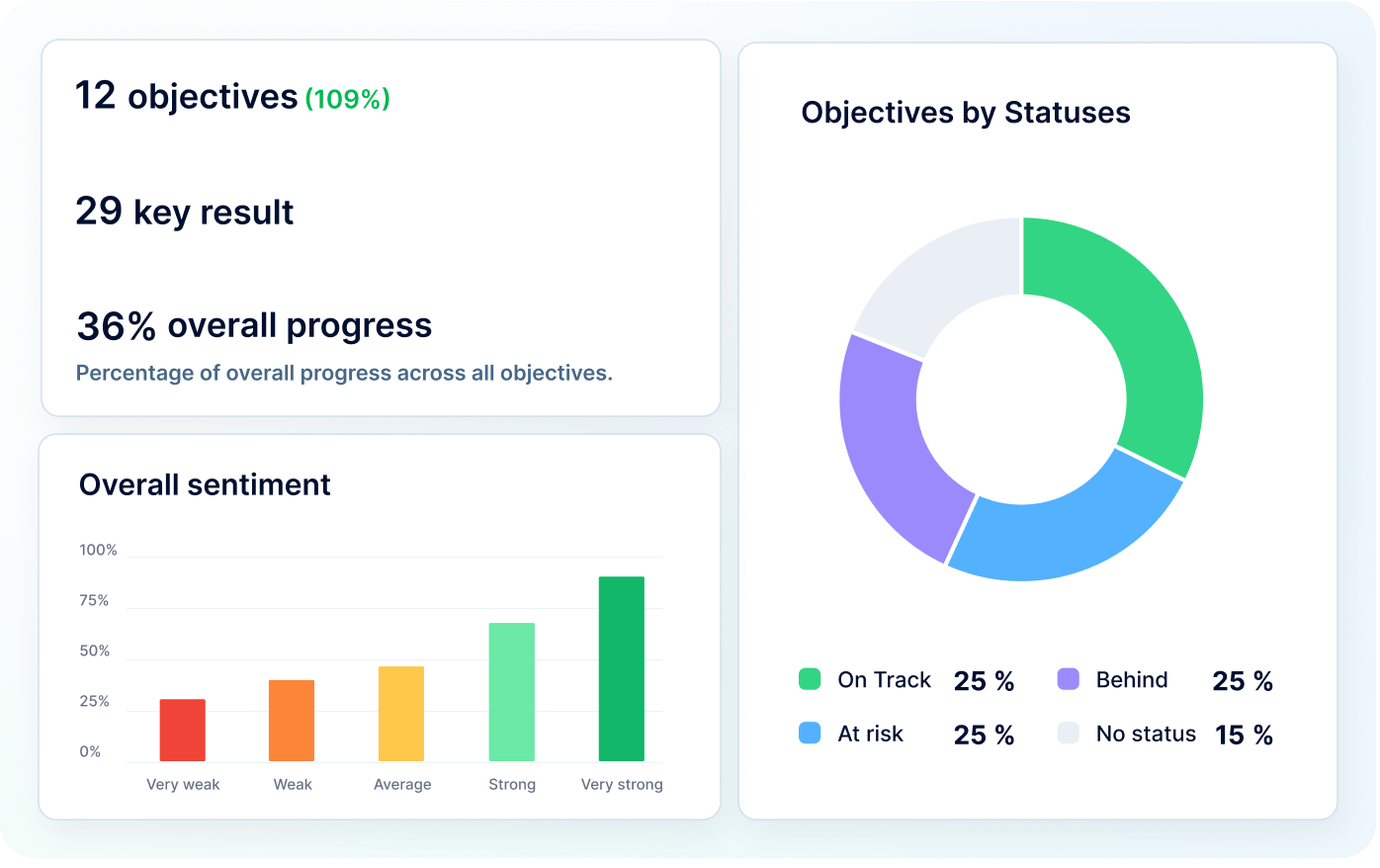
Recent articles
Top 10 ATS systems: The ultimate recruiter's guide
Looking for the best ATS? Compare the top 10 ATS systems by features, pricing, and user reviews to find the perfect hiring solution for your team.
🎉 PeopleForce Wrapped 2025: a year of HR magic
2025 wasn’t just about shipping features — it was about making HR work better at scale. Let’s unwrap everything we built together.
Get Ready for the EU Pay Transparency Directive with PeopleForce
Discover the key obligations of the Pay Transparency Directive and see how PeopleForce helps organisations prepare the structures, processes, and data needed to comply with the new requirements.

